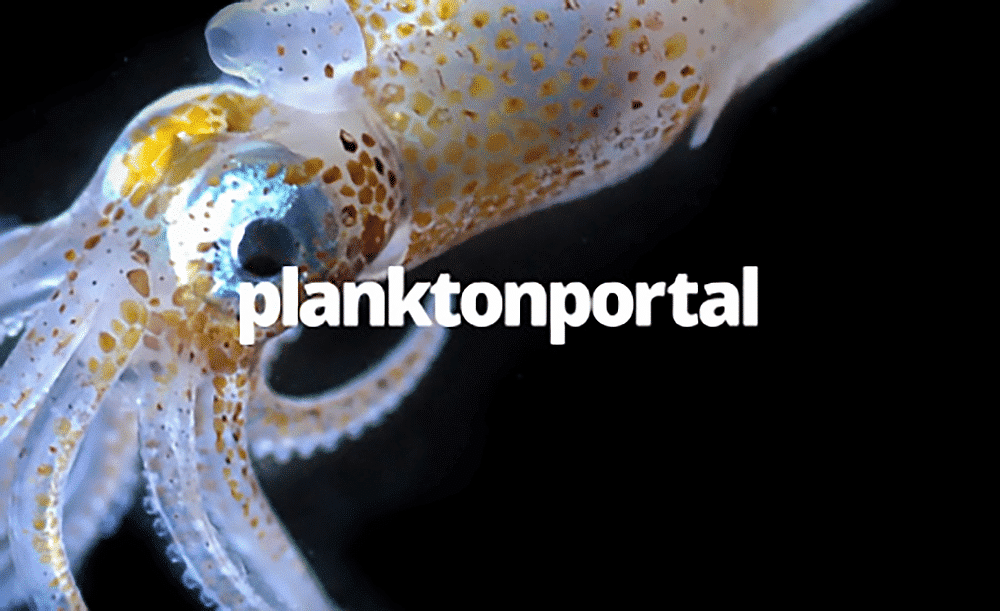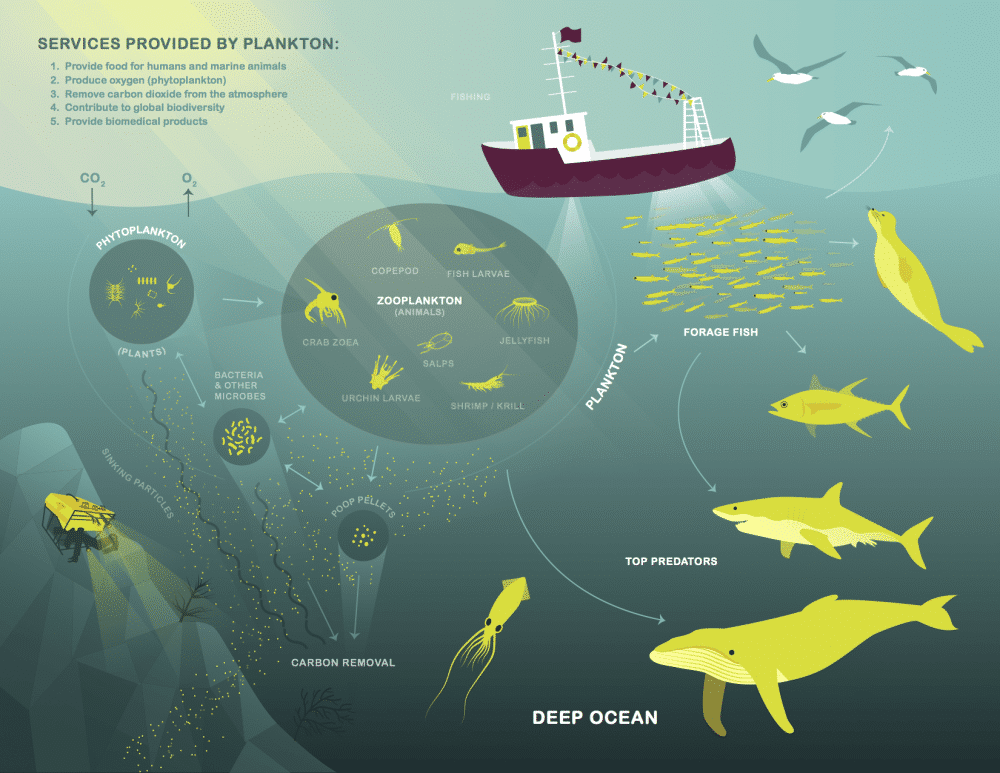United States (Portland)
Plankton are a critically important food source. No plankton = No life in the ocean.
Plankton also play an important role in the global carbon cycle, which captures the sun’s energy and the atmosphere’s carbon dioxide at the surface of the ocean and releases it to other organisms and other areas of the ocean. Understanding where and when plankton occur at different depths in the ocean allows scientists to get a global understanding of the function and health of the ocean from small to global scales.
Because plankton are an important food source and a strong indicator of the health of a marine biome, they can teach us many things about our planet’s oceans.
Plankton Portal is exactly what it sounds like – a portal into plankton. Citizen scientists can mark the tiny oceanic organisms in underwater images.

The head honcho is Bob Cowen, who dreamed up the concept over a decade ago while trying to catch rare fish larvae with nets in the Caribbean. He is now the Director of Oregon State University‘s Hatfield Marine Science Center.
Plankton Portal has the classic formula of a tiny research team, a big data problem and amazing little creatures. It is part of Zooniverse. The world’s leading ‘citizen science’ platform brings together people from all walks of life, from all over the world, to answer our biggest global challenges.
In 2007 a group of astronomers wanted to use the million galaxy Sloan Digital Sky Survey data set to understand galaxy evolution. But in order to do that, first they needed to know the galaxy type for each galaxy: was it a spiral, elliptical or merger? It would have taken the small research team more than their professional lifetimes combined to classify all the galaxies. Instead, they decided to try an experiment: what if they placed the data online and crowdsourced the effort?
The experiment was an amazing success. In the first hours, they were getting 50,000 classifications per hour. In the first year they were able to get enough classifications to complete the entire data set and tackle their research questions. Today GalaxyZoo.org still goes strong, with new data sets and questions to answer.
Ten years later, Zooniverse has expanded from Galaxy Zoo to over 110 citizen science projects across the disciplines – including physics, ecology, cancer research, climate science, arts, humanities, history, biomedical research, and more.
Zooniverse provides the tools for researchers to ‘unlock their data’ by crowdsourcing the tagging, annotation, marking and transcription of images, video or audio data. Projects often work in concert with machine learning methods to most efficiently process these large data sets, all the while prioritising providing an engaging and valuable experience for volunteers. The community has grown to over 1.6 million registered volunteers working directly with hundreds of researchers around the world – and has led to many transformative discoveries.
AtlasAction: Ready to help? Start classifying plankton in the Mediterranean or Californian current.
Learn more ► Portalplankton was mapped by Dr. Laura Trouille, Senior Director of Zooniverse in her AtlasChart Top 5: Life, the Zooniverse and everything.
Bio
Zooniverse info for all.
Project leader
Bob Cowen, Plankton Ecology Laboratory, Oregon State University
Support the Atlas
We want the Atlas of the Future media platform and our event to be available to everybody, everywhere for free – always. Fancy helping us spread stories of hope and optimism to create a better tomorrow? For those able, we'd be grateful for any donation.
- Please support the Atlas here
- Thank you!




